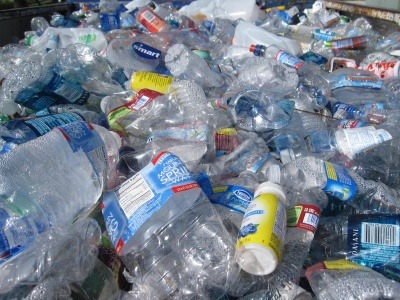Ellen MacArthur Foundation urges UN to establish plastic pollution treaty
The Ellen MacArthur Foundation (EMF) yesterday (31 August) published a white paper setting out the charity’s perspective on a UN treaty to address plastic pollution and support the transition to a circular economy for plastics.
In the white paper, the EMF outlines how climate change and biodiversity is best addressed through transitioning to a circular economy, which, the charity says, would address the entire lifecycle of plastics.
 According to the EMF, a circular economy would eliminate all problematic and unnecessary plastic items, innovate to ensure that any plastics in circulation are reusable, recyclable, or compostable, and circulate all plastic items within the economy, keeping them out of the environment.
According to the EMF, a circular economy would eliminate all problematic and unnecessary plastic items, innovate to ensure that any plastics in circulation are reusable, recyclable, or compostable, and circulate all plastic items within the economy, keeping them out of the environment.
Without action, the white paper warns, the volume of plastic on the market will double, the annual volume of plastic entering the ocean will triple, and ocean plastic stocks will quadruple within the next 20 years.
The white paper stresses the ‘critical role’ that policymakers play in creating the right conditions and incentivising progress. A global treaty, it maintains, is the next step in scaling the voluntary agreements already in place to reduce plastic pollution and transition to a circular economy.
Setting out a series of key messages for policymakers, the EMF states that ‘2021 is the year to build further consensus’ on global policy responses, with a new UN treaty holding the potential to address plastic pollution by providing a framework to solve the crisis.
A comprehensive policy framework, the charity says, would enable the development of circular design solutions for plastics, promote better resource management capabilities to eliminate waste and pollution, and review the setup of financial incentives and regulations to shape the conditions for a circular economy.
Additionally, such a framework would facilitate investments to scale innovations, infrastructure and skills in countries and industries in need of international support, and foster public-private collaboration across value chains and governance structures.
Any international agreement to reduce plastic pollution and promote a safe circular economy for plastics, the EMF adds, would have to be based on the following key principles – precautionary approach, common but differentiated responsibilities, polluter pays, and equity.
104 national governments have already called for a UN treaty to tackle plastic pollution, with more than 2 million people signing a public petition. The white paper sees the EMF joining these calls, urging all governments, industry, and civil society to work together towards a common understanding of the central tenets for a new UN treaty, as well as the establishment of an international negotiating committee at UNEA 5.2 in February 2022.
The white paper also outlines existing industry and policy initiatives, such as The New Plastics Economy, the Global Commitment, and the Oceans Plastics Charter. It warns, however, that current efforts do not adequately address plastic pollution, with a new UN treaty presenting an opportunity to strengthen policy coordination and collaboration even further.
Andrew Morlet, CEO of the EMF, said: “A UN treaty on plastic pollution is crucial to the creation of a circular economy for plastic, and now financial institutions too are urging governments to establish an international agreement. Setting a coherent international policy direction will support the delivery of commitments being made by leading global companies, and level the playing field for the entire industry so that all actors can play their part.
“A legally binding, global agreement will foster investment in infrastructure and circular economy solutions and help mitigate investment and financial risks associated with plastic pollution, including its role in climate change and biodiversity loss.”
Rogier Krens, Chief Investment Officer at Achmea Investment Management, also commented: “Achmea Investment Management strongly supports the business call for a UN treaty on plastic pollution led by WWF and the Ellen MacArthur Foundation. We need better global policy to solve the plastic pollution crisis.
“We sign this business manifesto as a signal to global policymakers that adequate regulation is needed to set a global and reliable regulatory level playing field. This is crucial to enable leading industries to develop and market alternatives to fossil fuel-based plastics and end plastic pollution.”
Marco Lambertinin, Director General at WWF International, added: “The growing number of companies calling for a treaty on plastic pollution sends a strong signal to UN member states that industry and civil society are united in wanting to see governments act decisively on this issue.
“The mounting plastic pollution crisis and its costs to people and the planet can no longer be ignored: it is a global problem that cannot be solved without the world uniting around coordinated global solutions and a common plan.”
The full white paper can be read on the Ellen MacArthur Foundation’s website.






